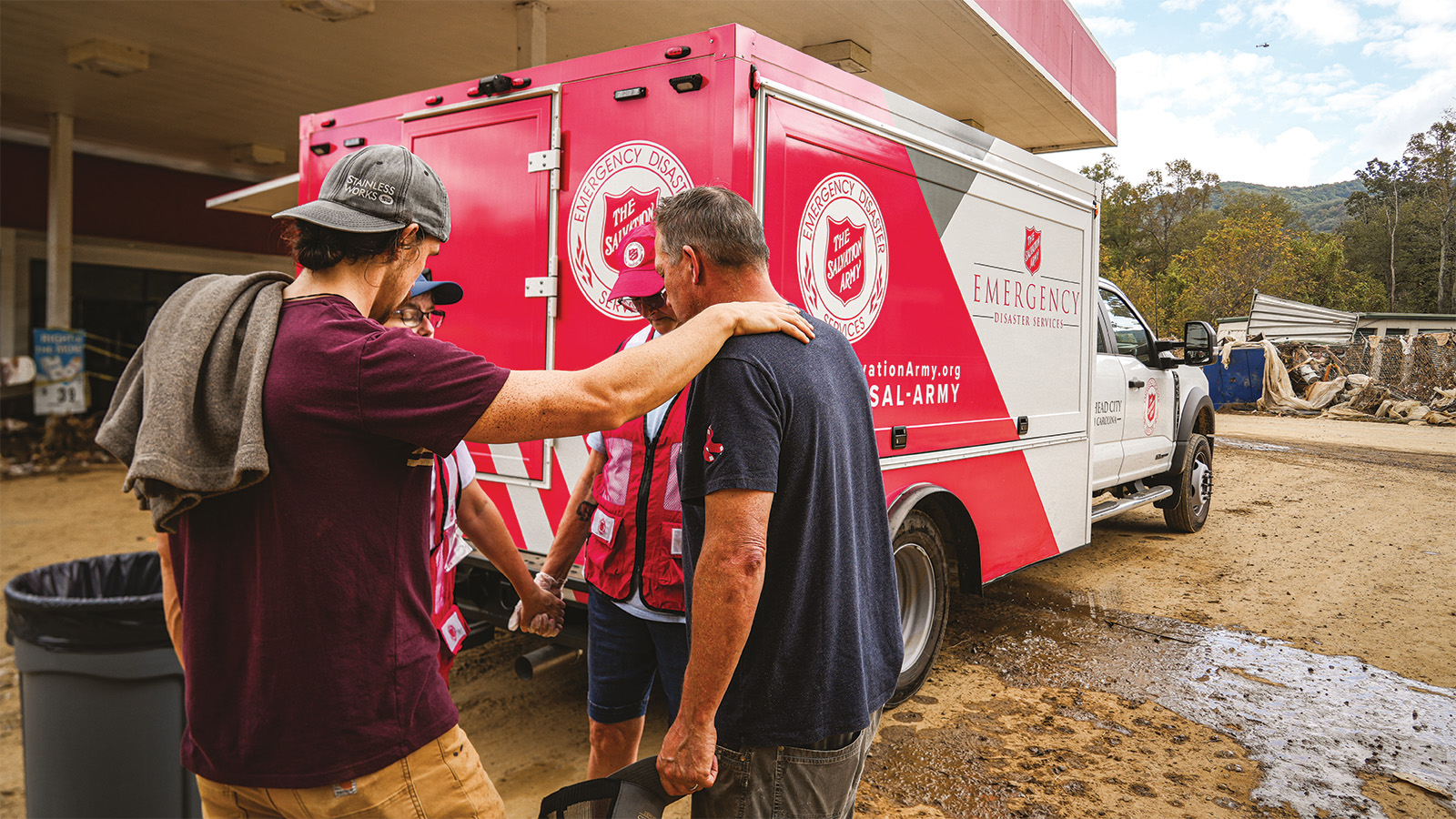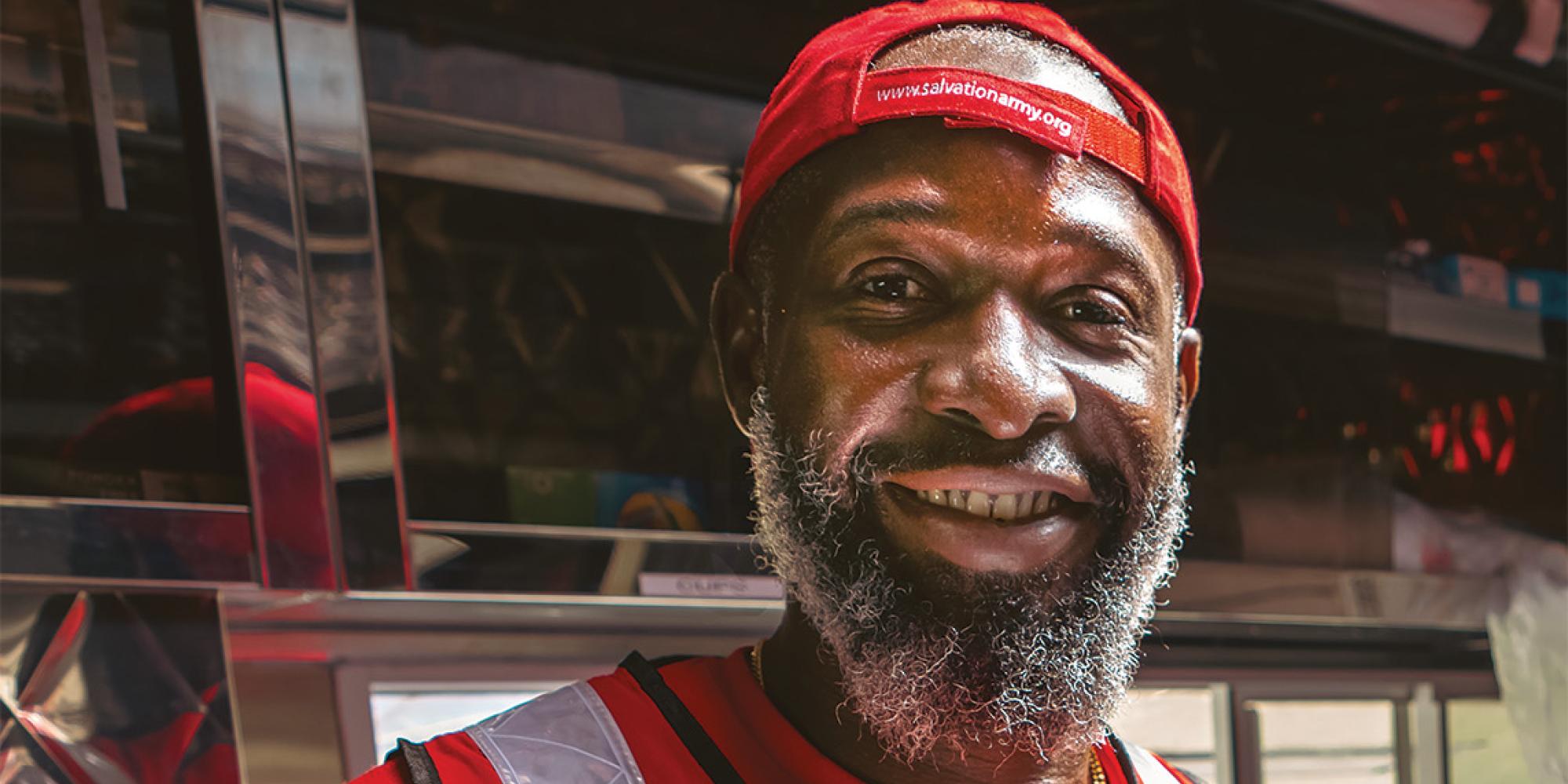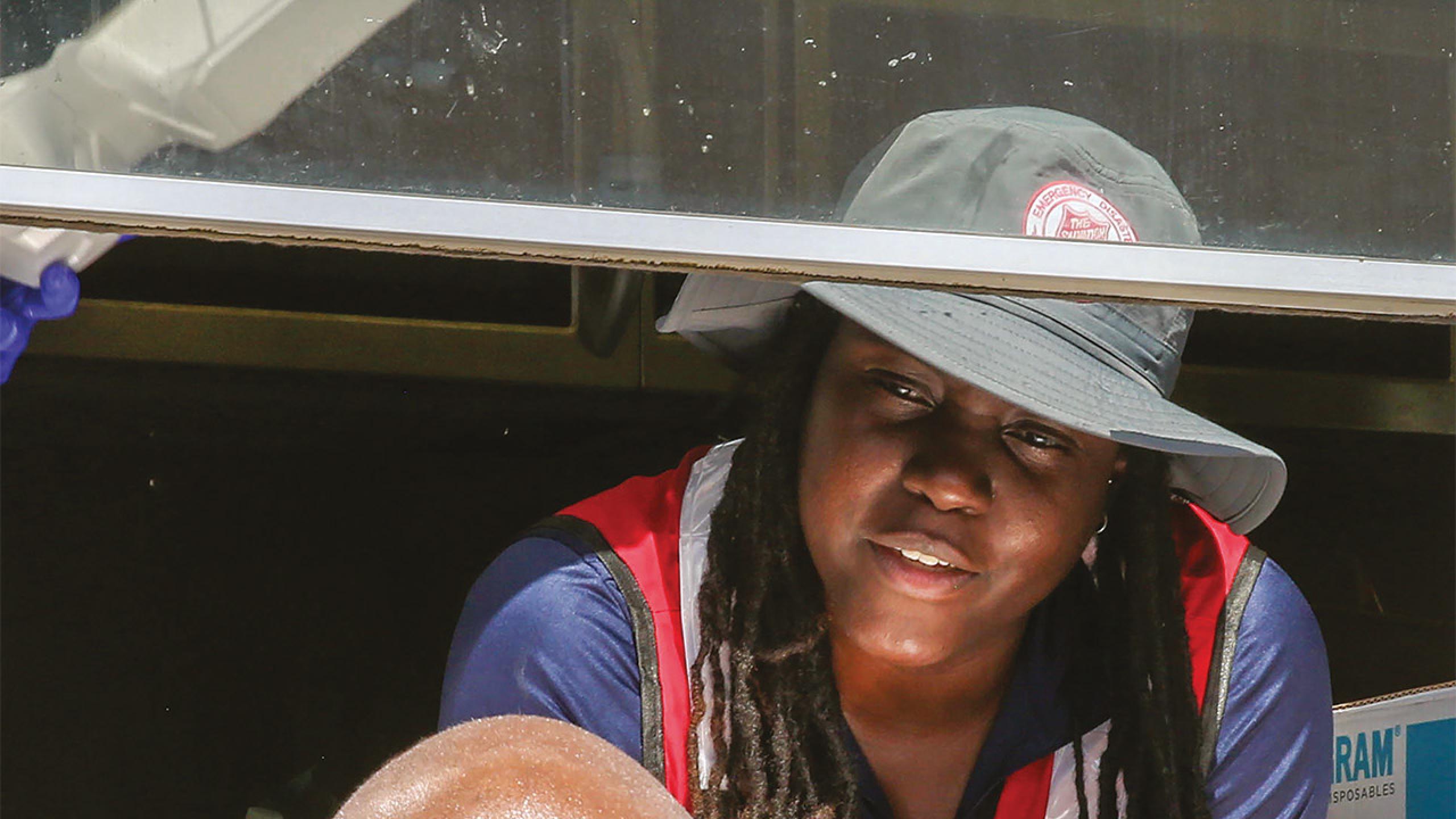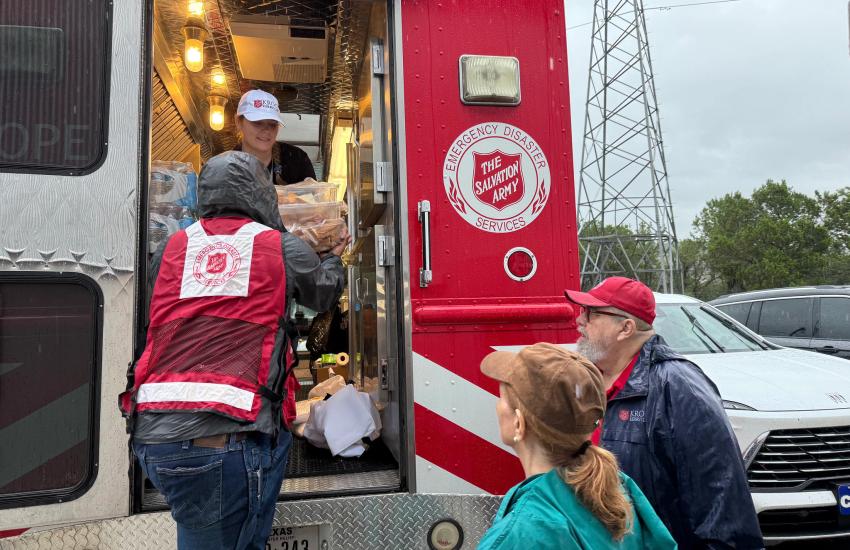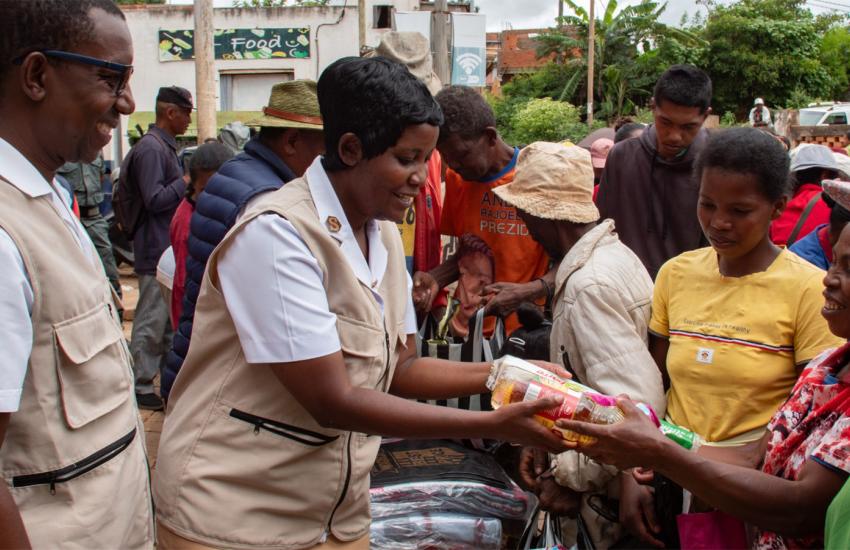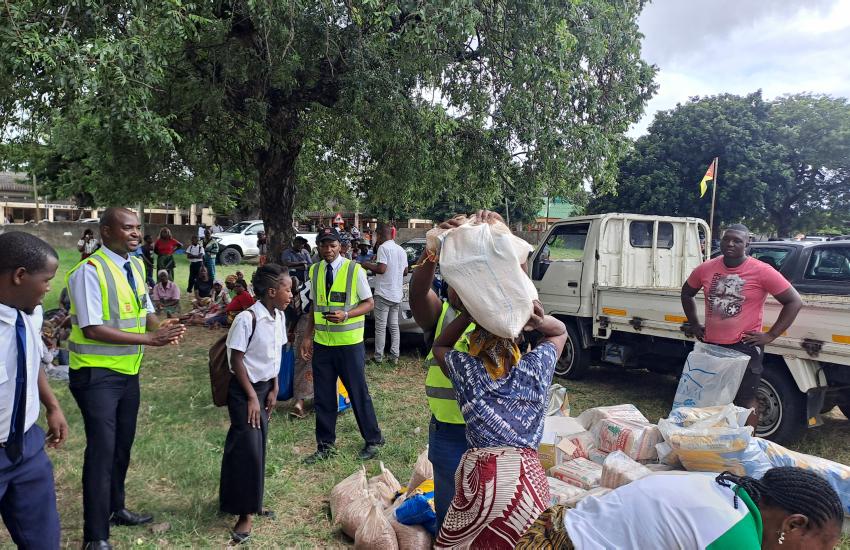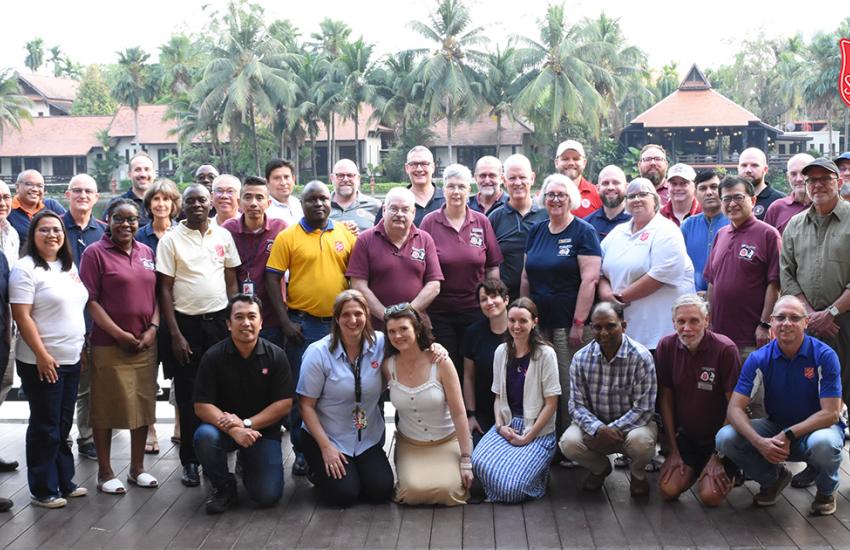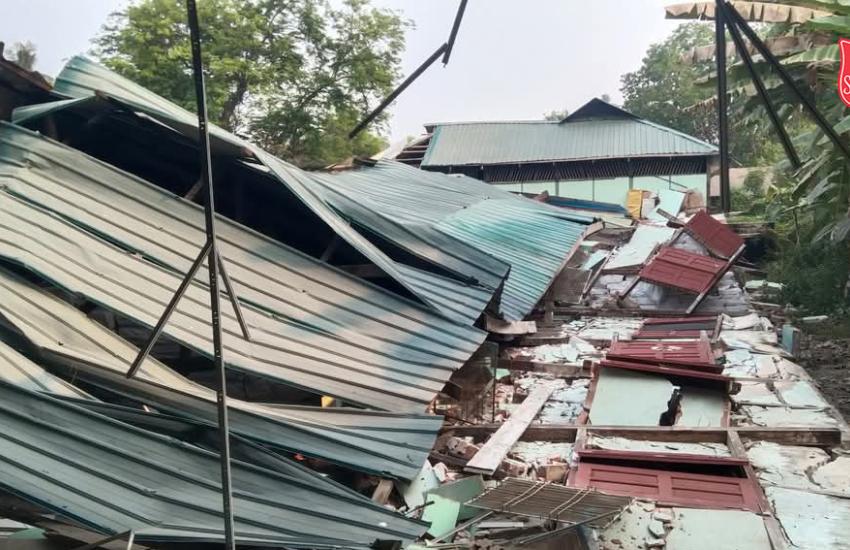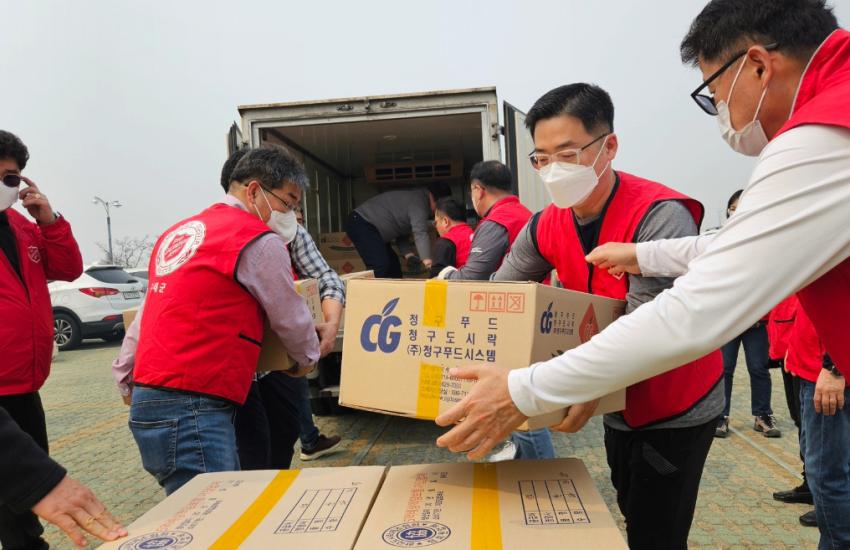Education
We provide information and training to help people protect themselves against the impact of disasters and we offer an extensive training programme of specialised courses for disaster workers.
Food service
When disaster strikes, we quickly mobilise to provide food and drinks to survivors and rescue workers. A hot meal, a warm cup of coffee or a cold bottle of water are often the first expressions of care to someone whose life has been turned upside down.
Emotional and spiritual care
Many disaster survivors and first responders experience emotional distress after a traumatic event such as a tornado. We deploy specially trained individuals to offer emotional and spiritual care to rescue workers and disaster survivors who may need a listening ear, a shoulder to cry on or a word of encouragement. Emotional and Spiritual Care workers are also able to answer questions about the disaster recovery process and how to find and receive services.
Emergency supply distribution
Our disaster warehouses are stocked with critical emergency relief supplies, such as food, water, cleaning products, baby supplies and hygiene items, which can be quickly delivered and distributed to disaster survivors.
Emergency financial assistance
After a survivor has lost everything, we provide gift cards and vouchers to help purchase and replace the things they need most: food, clothing, child and baby care items, prescription medications, and supplies to clean and repair homes.
Donations management
After a disaster, we identify needs in affected communities and partner with donors to responsibly collect, transport and distribute critically needed supplies to survivors.
Long-term recovery
Disaster recovery may take years. The Salvation Army works with government, charitable and private-sector partners to promote community resilience and help survivors rebuild and return to normality.
